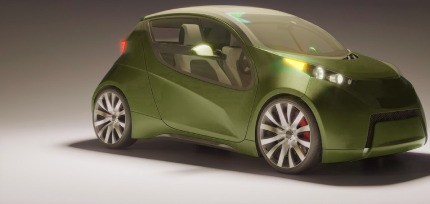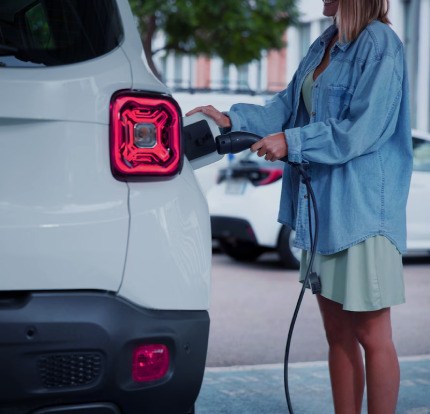When it comes to electric vehicles (EV’s), the decision to buy a new or used one can be a particularly significant consideration.
Electric cars, like their gasoline counterparts, depreciate in value over time, but there are some unique factors to consider when contemplating a used electric vehicle.
Here are some key points to help you determine if buying a second-hand EV is appropriate for you:
Consider your initial cost savings
One of the most compelling reasons to consider buying used electric vehicle is the potential for significant cost savings compared to buying a brand-new one.
EVs tend to depreciate faster in their early years, which means you can often find relatively new electric cars at a fraction of their original price. This initial cost advantage can be especially attractive for budget-conscious buyers.
The main reasons behind the faster price depreciation compared to traditional gasoline-powered vehicles are several but one of the most important is the rapid technological advancements.
The electric vehicle industry is evolving rapidly, with new models and technologies continually emerging.
As a result, older EV models quickly become outdated in terms of range, performance, and features. This rapid technological advancement can lead to faster depreciation as consumers seek the latest innovations.
Top factor – the EV’s battery health
The battery is a critical component of an used electric vehicle, and its health is a primary concern when buying a used EV. Battery degradation occurs naturally over time and can impact an EV’s driving range.
However, many EV manufacturers offer warranties on their battery packs, ensuring that they maintain a certain level of performance over a specified period.
When considering a used EV, it’s essential to inquire about the battery’s health and whether any warranty coverage remains.
Consider your charging infrastructure
Before purchasing a used electric vehicle, assess the availability of charging infrastructure in your area.
Ensure that you have convenient access to charging stations, both at home and in public places. A robust charging network can alleviate concerns about charging range and make owning a used EV more practical.
What is the story behind your old new car
Obtain a comprehensive vehicle history report to understand the EV’s past. This report can reveal important details about accidents, maintenance records, and ownership history.
It’s crucial to ensure that the used EV has been well-maintained and serviced regularly to avoid potential issues down the road.
How old is the car – model and age
The specific make, model, and age of the used electric vehicle can significantly impact your decision.
Some older EV models may have limited range and less advanced technology compared to newer counterparts. Research and compare different models to find one that aligns with your needs and expectations.
Warranty coverage
Check whether any original manufacturer’s warranty on the used EV is still in effect. Some manufacturers offer extended warranties on certified used electric vehicles, providing added peace of mind.
Warranty coverage can help mitigate potential repair costs of an used electric vehicle
Maintenance and repairs

Electric vehicles generally require less maintenance than traditional gasoline-powered cars due to their simpler drive trains.
However, it’s essential to budget for occasional maintenance and potential repairs, especially for components like the electric motor, charger, and battery.
Government incentives
In some regions, government incentives, such as tax credits or rebates, may be available for purchasing a used electric vehicle. Be sure to research the incentives offered in your area to maximize potential savings.
Should i buy an old EV if the battery needs to be replaced
Buying an electric vehicle (EV) when the battery needs to be replaced is a decision that requires careful consideration. It’s important to weigh the costs and benefits, understand the condition of the battery, and explore your options thoroughly before making a purchase
It’s crucial to research the specific cost of a replacement battery for the make and model of the electric vehicle you are considering. Compare this cost to the current market value of the cars to determine if it’s financially viable.
Explore the warranty coverage
Check if the electric vehicle’s battery is still under warranty. Many manufacturers offer warranties for a certain number of years or miles, and this coverage can vary.
If the battery is under warranty, you may be eligible for a free or partially subsidized replacement, depending on the warranty terms.
Consider the overall vehicle age and condition
Consider the age and overall condition of the used electric vehicle. Older cars may have more wear and tear on other components besides the battery, which could require maintenance or repairs. Evaluate the vehicle’s history and maintenance records to assess its overall health.
Is the battery health really so bad
If possible, obtain a detailed report on the battery’s health and performance. Some diagnostic tools can assess the battery’s capacity, state of health, and remaining lifespan.
This information is valuable in determining if the battery needs immediate replacement or if it can continue to function adequately for a while.

My name is Rebecca McCarthy and I am an American girl with British heritage residing in the beautiful city of Nashville, Tennessee. I have always had a keen interest in cars, particularly brand new ones that showcase the latest technology and design features. I am also passionate about travelling and experiencing new cultures, as well as enjoying hot summer days with friends and family.



